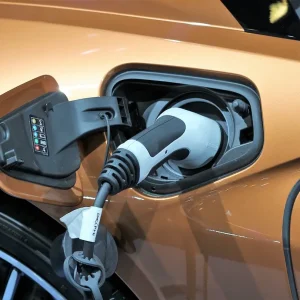The Energy Saving Trust came to the fore with the rapid success, followed by rapid failure, of LPG conversion subsidies. The organisation now has an uphill struggle to regain fleet’s confidence, but green transport boss Nigel Underdown is up for the challenge.
The Energy Saving Trust has had a checkered history in the business car market. The Government funded organisation’s most noted success is also its most noted failure – the promotion of LPG as a fuel for cars. The scheme to promote dual-fuel LPG-powered vehicles was a victim of its own success with funding for conversions running out just as the project got into full swing.
Nigel Underdown, who was sales and marketing director of Godfrey Davis Contract Hire until mid-2004, joined the EST as head of transport advice at the end of this saga and is acutely aware of its legacy. He is now repairing the image of the EST’s transport division by ‘selling’ green on the one issue business car managers understand – cost cutting.
Underdown is the first to acknowledge the EST’s problematic history and is critical of the way the Government handled the LPG situation.
“There’s a hangover from LPG that’s a sorry saga of [a lack of] Government support. The [subsequent] collapse in RVs [of LPG vehicles] meant the few that stuck their necks out got a few brickbats,” comments Underdown.
“Lots of fleets think it costs to go green and that it’s about driving a Prius; their argument is that a Mondeo is cheaper.”
But Underdown reasons the exact opposite is true and that going green actually doesn’t cost -“If your business uses less carbon then you will save money” – and what transport manager doesn’t want to cut his fuel bill?
Underdown continues: “Our core work is on-site consultancy and we’ve never found a company where we couldn’t save money and carbon emissions.”
However, assessing the quantity of emissions in the first place is problematic.
“Measuring a carbon footprint is tricky – it’s the Holy Grail for us. Most fleets find they can’t measure exactly, so they stop there. We’re convincing people that 95% accuracy is okay, providing you follow the same approach the next time you measure.”
Training up
The EST has begun working with industry training body ICFM to instill the carbon-cutting message in business car managers early.
“Fleet managers don’t manage mileage – you can’t tell a sales manager that 30,000 miles a year is too much. As a fleet manager you have to think of alternatives, like asking ‘was that meeting really necessary?'” says Underdown.
The EST believes traditional company car drivers are already doing well, particularly those fleets run by the “public sector because they have a message from on high”.
One of the organisation’s biggest concerns, however, is the ‘grey fleet’ market, or those cars funded by a company but not directly operated by them, including cars on ECO schemes.
“The average grey fleet car produces 184g/km plus 15%,” says Underdown – working on the principle that actual tailpipe emissions are 15% higher than official car figures, in the same way that official fuel consumption figures are rarely what drivers achieve – “whereas the average fleet car is 167g/km. There’s an inbuilt incentive to claim extra miles with AMAP too.
“If we’re talking to a 500-strong fleet, the odds are there’s another 3000 people with their own cars, and at the moment we’re not funded to work on consumer transport.”
Cutting the emissions of privately run cars is the DfT’s responsibility, which puts Underdown on a collision course with current Government thinking.
“VED raising for the public is fine, but with fleet it has a huge impact on running costs,” empathsises Underdown.
To hear more of Nigel Underdown’s thoughts, sign-up to the BusinessCar Conference where he will be speaking.





